Welcome back to the How to Play Magic: The Gathering series from Star City Games! If you need to catch up, you can check out the previous article in the series, Priority And The Stack, or start at the beginning with The Basics.
Today we’ll cover some of the slang you’ll encounter when playing, watching, or reading about Magic. Over the years players have created nicknames and shorthand for many abilities and concepts from Magic. While a lot of the phases you hear will come from specific cards, many words have backstories or more abstract definitions. Other phrases can even come from other games. We’ve put together a list that should get you started in learning Magic lingo.
Aggro
Aggro is short for “aggressive,” normally used when referencing a style of deck that tries to end the game quickly with a mix of cheap creatures and direct-damage spells.
Alpha Strike
Alpha Strike means attacking with all of your creatures that can attack.
Anthem
Anthem is a nickname for an effect, usually from an enchantment or creature, that grants your creatures +1+1. It originates from the enchantment Glorious Anthem from Urza’s Saga.
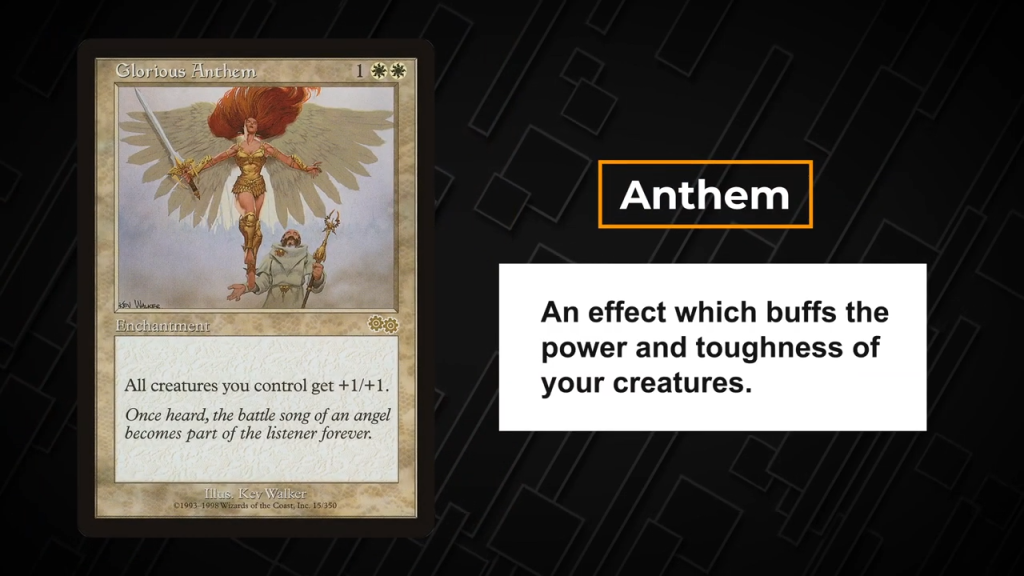
Battle
Battle is the term used for attacking with a creature.
Bear
Bear is a nickname for any two-mana 2/2 creature, after the card Grizzly Bears from Limited Edition Alpha, the very first set.
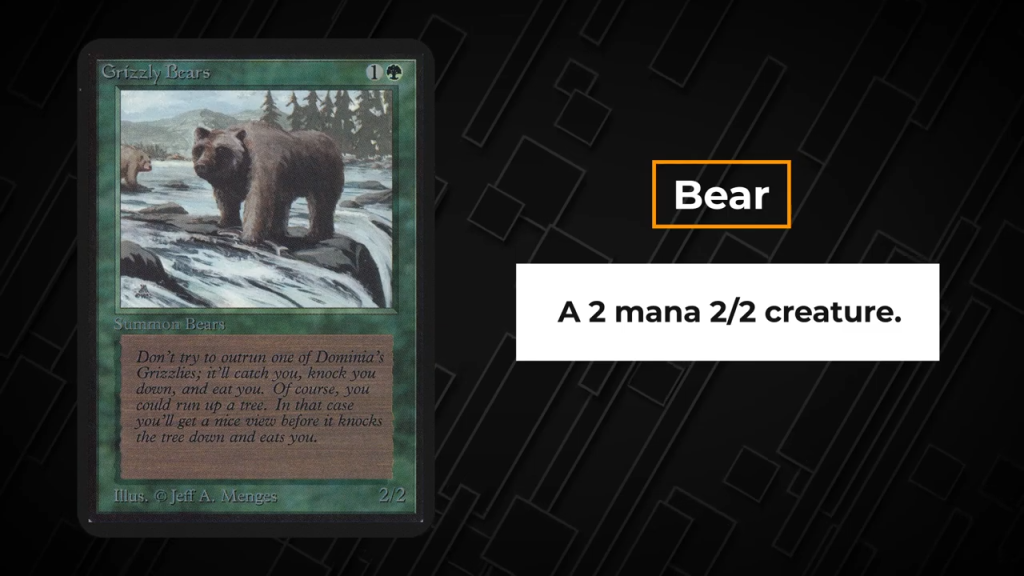
Beatdown
Beatdown can describe how a match went, but is typically referencing the question “Who’s the beatdown?” from a classic article by Mike Flores. The question attempts to figure out which of the two players in a game is supposed to be the aggressor due to how the match will play out.
Blink / Flicker
Blink and Flicker have the same meaning. This is an effect that exiles a permanent and immediately returns it. The terms come from cards like Momentary Blink and Ghostly Flicker.
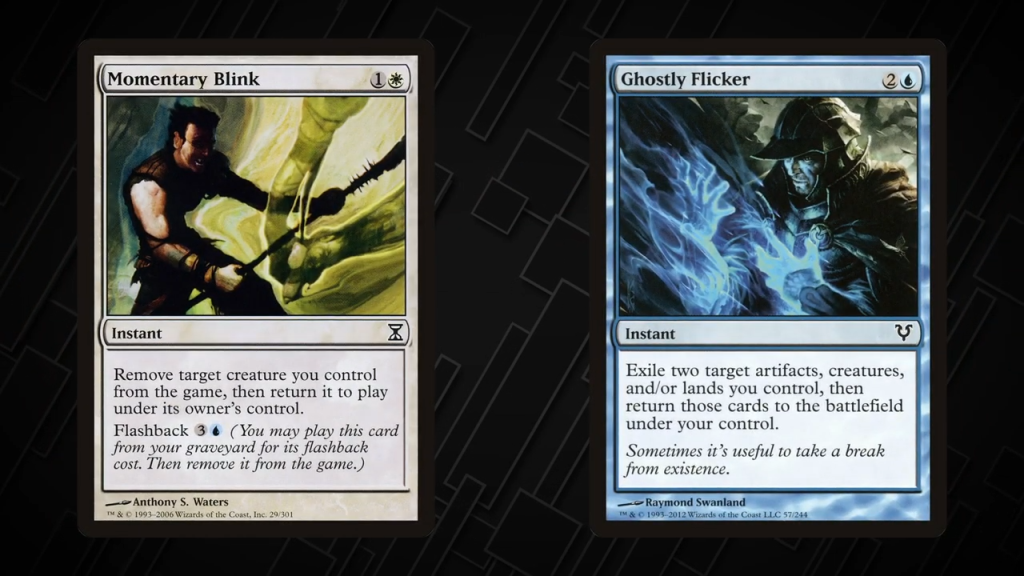
Board / Board State
Board is a nickname for the battlefield. Players may mention having an on-board trick to refer to a permanent that can be activated for an effect, unlike an instant-speed card that can be used as a “combat trick.” Board state refers to the permanents one or more players have on the battlefield. Board presence is usually used interchangeably with board state but will sometimes be used to suggest a better position than an opponent, as in the sentence, “I had an overwhelming board presence.”
Board Wipe / Sweeper / Wrath
Board wipe, sweeper, and Wrath all refer to spells that destroy or exile all cards of a specific type on the battlefield, usually creatures. The nickname Wrath comes from an Alpha card, Wrath of God.
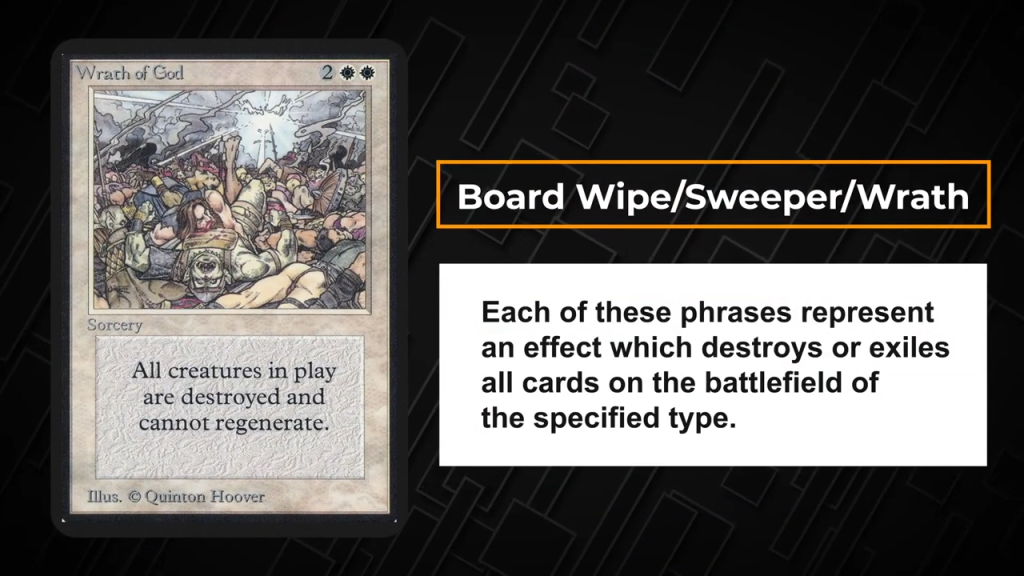
Bomb
Bombs are typically extremely strong or game-warping cards in Limited play, often referring to rare or mythic rare cards that are almost impossible to overcome when cast.
Bounce
Bounce is a term used for the action of returning a permanent on the battlefield back to its owner’s hand.
Brew
Brew is the name for a newly made or rogue (outside-the-norm) deck, often using underutilized cards or strategies. “To brew” is to make such a deck.
Burn
Burn is a nickname for any kind of direct damage spell.
Cantrip
Cantrip refers to any spell that has the additional line “draw a card” on it.
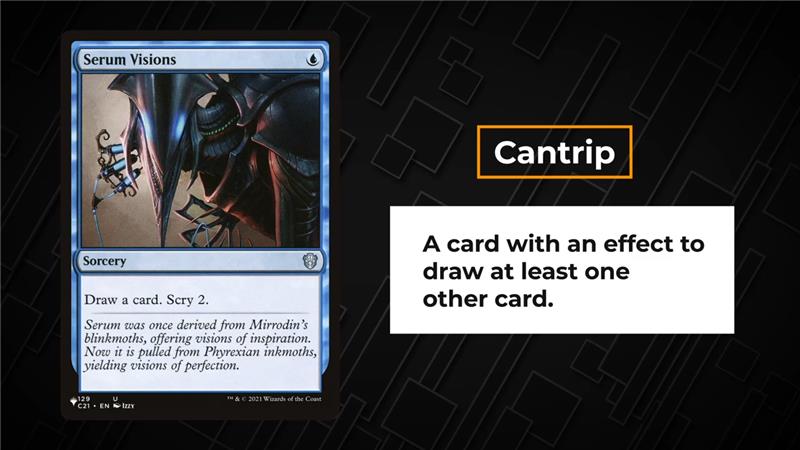
Chump Block
Chump block (sometimes just “chump”) means to block an attacking creature with a smaller creature that will die, but won’t be able to kill the attacking creature, in order to preserve your life total.
Clock
Clock refers to the amount of turns it will take for a creature to end the game if left unanswered. If you have an unopposed five-power creature and your opponent is at 20 life, your opponent is on a four-turn clock.
Combo
Combo is a combination of two or more cards that when played together create a larger effect, or a deck featuring one or more combos.
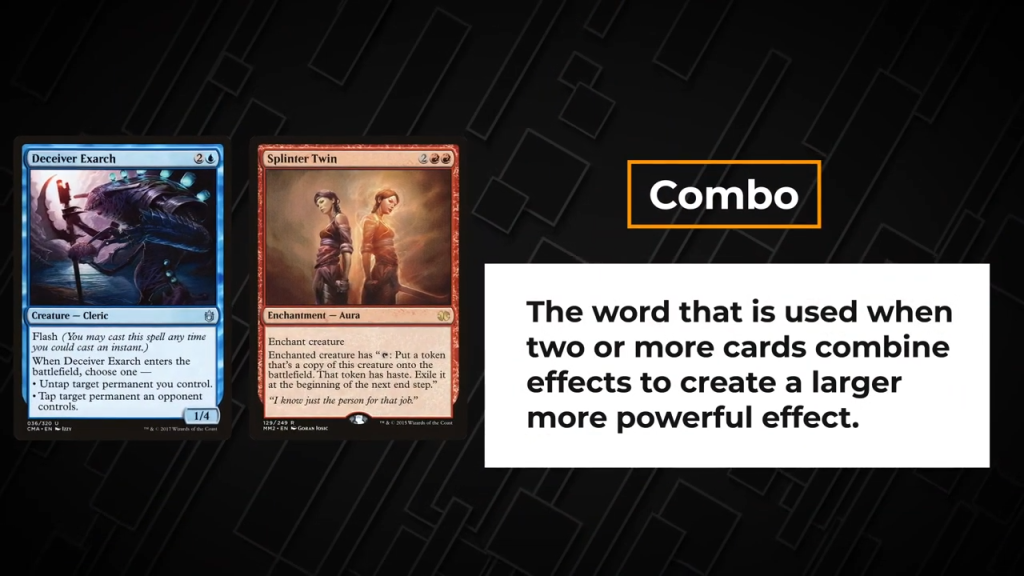
Control
Control is the name for decks that look to answer the opponent’s threats, stabilize the battlefield, and win a long game through card advantage and inevitability.
Curve
Curve can be used a few ways. The commonest means having spells to cast on sequential turns, like a two-mana card on the second turn, a three-mana card on the third turn, and so on. If someone curves out, they are playing on curve with something like a one-mana creature, into a two-mana creature, into a three-mana creature, and so on.
Dead on Board
Dead on board is the term for when a player has a lethal attack or path to victory on the battlefield, and it’s known to all players. If you have two 2/2s and your opponent is at four life, they are dead on board to your next attack unless they draw an answer to one of the creatures.
Disruption
Disruption is the term for cards that try to stop what your opponent is trying to do. Discard spells and counterspells are typical types of disruption that prevent players from doing what they want.
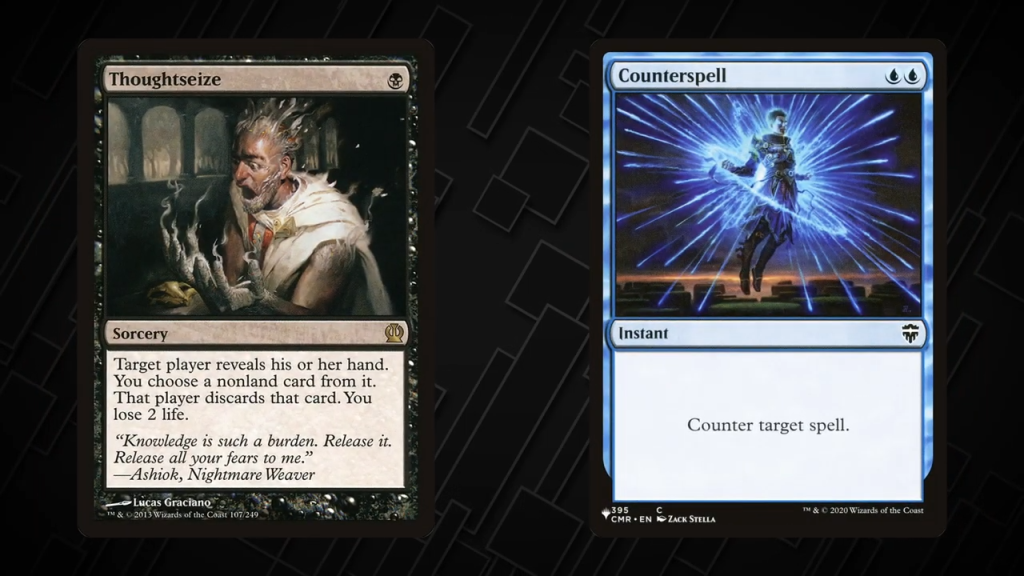
Drain
Drain is a nickname for an effect that deals damage to a creature or makes an opponent lose life, and then you gain life equal to the damage or life loss. The nickname comes from an Alpha card, Drain Life.
Durdle
Durdle is the process of taking game actions that don’t impact the battlefield or actively try to end the game. Manipulating your hand with card drawing or accumulating resources are examples of durdling.
Edict
Edict is the nickname for a spell or ability that makes a player sacrifice a creature, named for Diabolic Edict from Tempest.
EDH
EDH is the acronym for Elder Dragon Highlander, the original name for Commander before it was officially supported by Wizards of the Coast. It was named Elder Dragon Highlander because, when it was first created, only the Elder Dragons from Legends were allowed as commanders, and Highlander is a reference to the film and TV franchise, which has a catchphrase “there can be only one,” referencing the limitation that only a single copy of a card can be played in a deck.
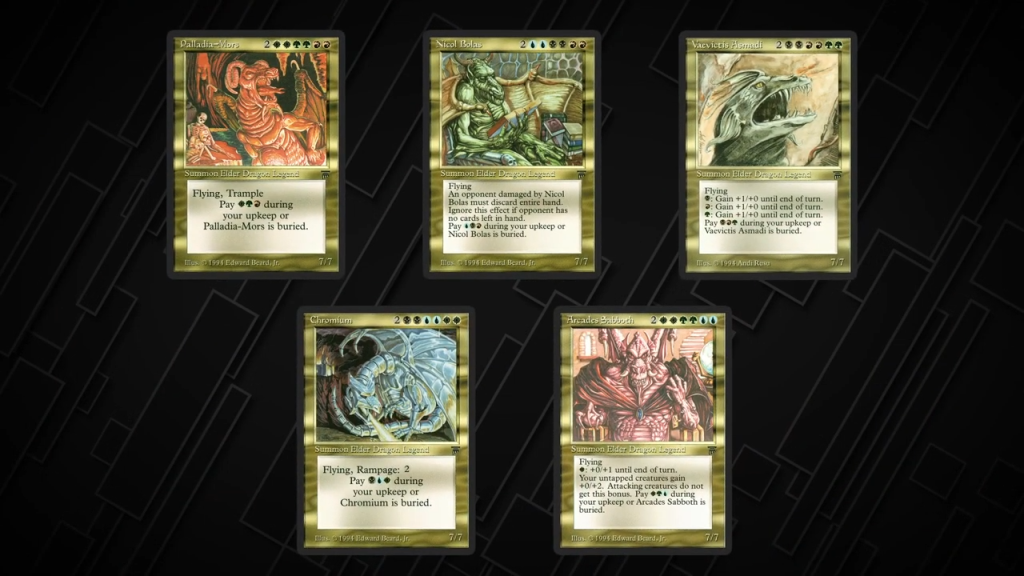
ETB
ETB is an acronym for the phrase “enters the battlefield.” Creatures with ETB effects do something when the creature enters the battlefield.
Evasion
Evasion refers to abilities on creatures that make them hard or impossible to block. Flying, menace, shadow, and unblockable are some types of evasion (see also: How To Play | Keywords).
Fast Mana
Fast mana effects are one-time abilities or spells that give a burst of mana. Cards like Dark Ritual, Seething Song, and Lotus Petal are types of fast mana spells.
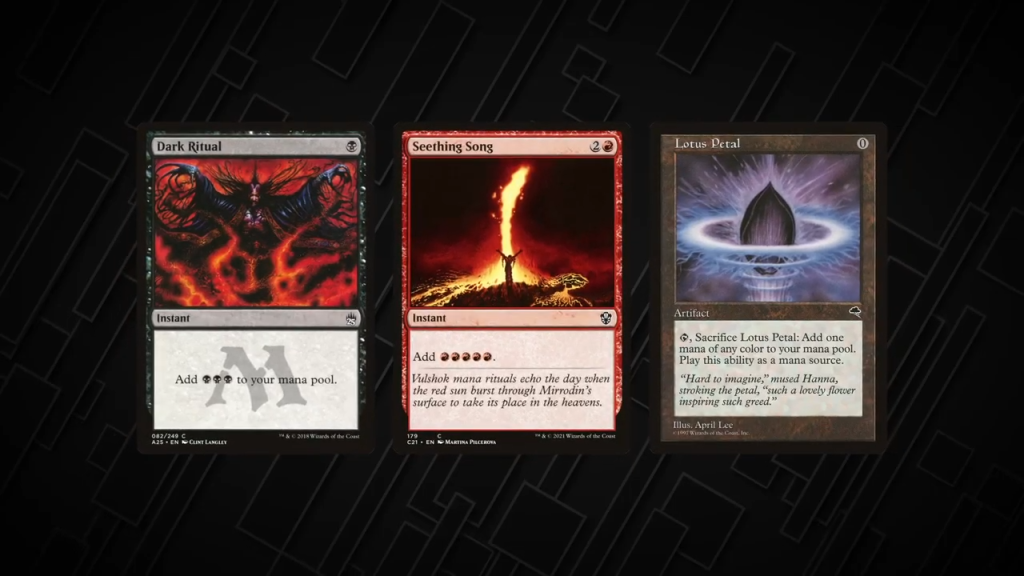
Fizzle
Fizzle is a term for a spell that is countered on resolution because it has no legal targets. For example, if a player casts Murder targeting an opponent’s creature, but the opponent casts Village Rites in response and sacrifices the targeted creature to pay for it, the Murder will fizzle when it tries to resolve because it no longer has a legal target.
Flicker
A synonym for Blink.
Go Wide
Go wide is the term for forming a battlefield with many small creatures to overwhelm the opponent, typically with tokens, to outclass an opposing large creature on the opponent’s battlefield.
Goldfishing
Goldfishing is the action of playing your deck without an opponent, sometimes jokingly referred to as playing against a goldfish in a bowl, to see how it functions.
Jam
Jam means to cast your spell without hesitation or to play into open mana because your gameplan requires playing your spells efficiently, regardless of whether they get countered or removed after the fact.
Lethal
Lethal can describe an amount of damage that will either kill a creature or reduce the opponent’s life total to zero.
Loot
Loot is a nickname for the action of an ability that lets you draw a card, then discard a card, named after Merfolk Looter from Exodus.
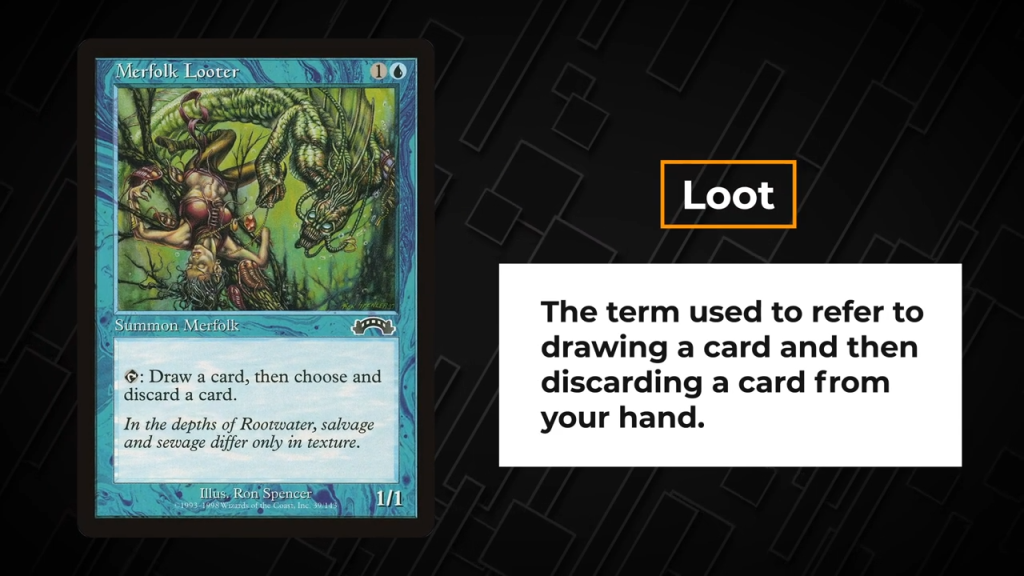
Metagame
Metagame is the game outside the game, or the way a format shapes around what decks are popular, leading to a rise and fall of different decks.
Midrange
Midrange is a deck archetype that isn’t quite aggro or control. Midrange has a faster clock than control, but slower than aggro, and has tools to combat most archetypes.
Mill
Mill is now a keyword for the act of putting cards from a player’s library into their graveyard. For most of the game’s history, this action was nicknamed “mill” because of the card Millstone from Antiquities.
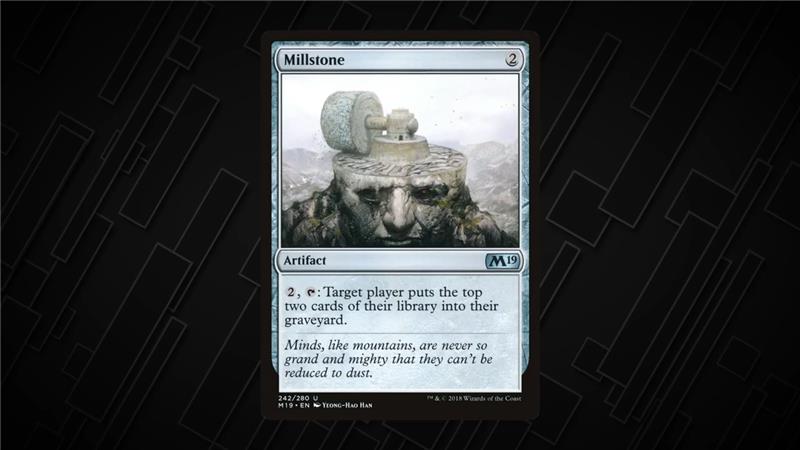
Outs
Outs are cards you can draw from your deck that can get you out of a losing board state.
Pinger
Pinger is a nickname for creatures that can continually be used to deal one damage to a target. Prodigal Sorcerer was one of the original pingers.
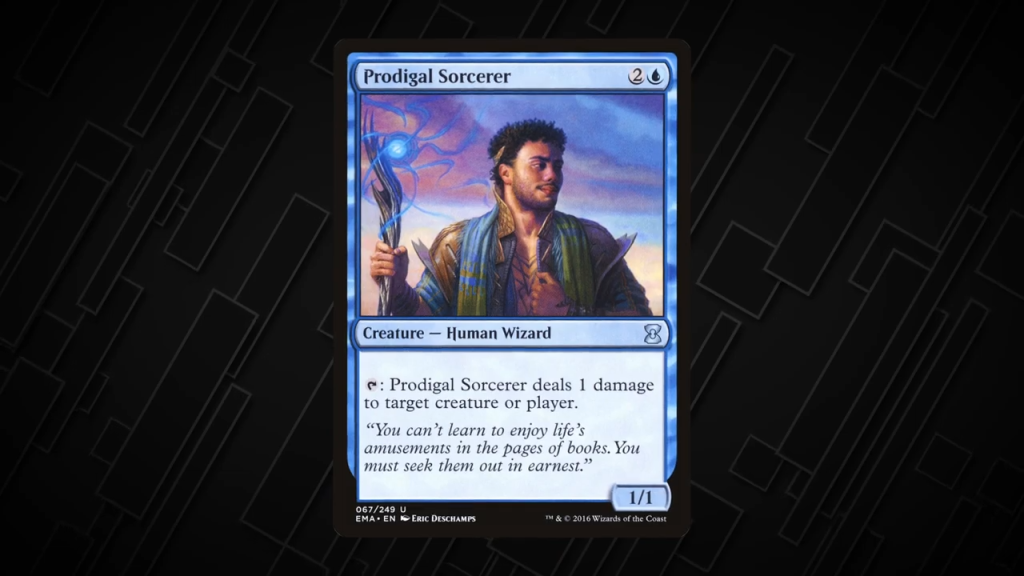
Play Around
To play around something means playing your cards in a manner to not lose to a certain card from an opponent.
Playset
Playset refers to having four copies of a given card in your deck, the maximum number of copies of a card (other than basic lands) a deck can have.
Prison
Prison is a deck archetype with the main goal of not letting your opponent do things they want by locking down their mana, preventing them from casting spells, or stopping them from attacking with creatures.
Racing
Racing refers to a battlefield state where both players are attacking each other with creatures, but not looking to block, in an attempt to win as quickly as possible.
Ramp
Ramp is the name for the action of putting extra lands onto the battlefield through spells and creatures so that you can play bigger spells ahead of schedule.
Reanimation
Reanimation is a nickname for putting a creature onto the battlefield from the graveyard through spells and abilities, named for the card Reanimate from Tempest.
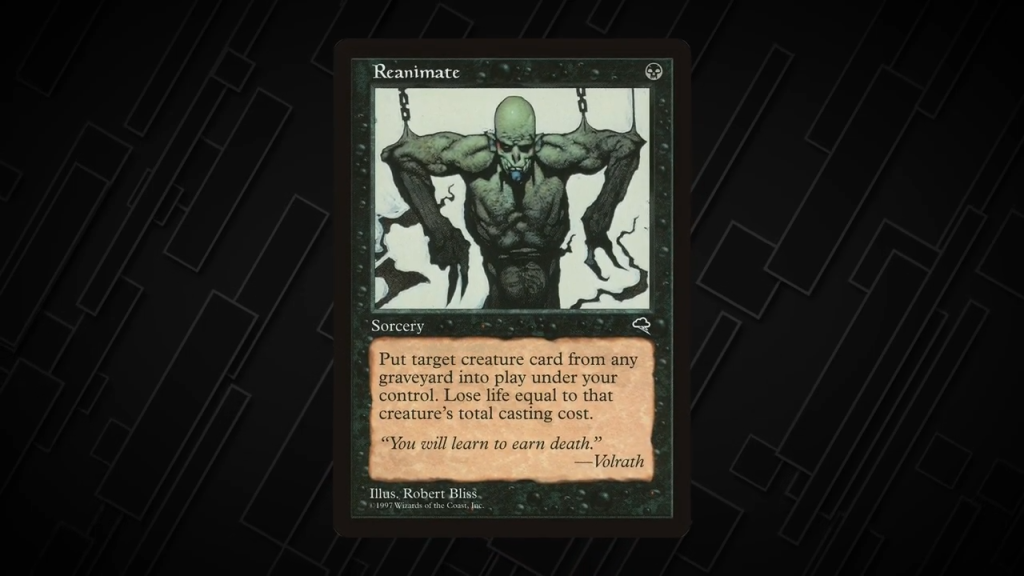
Red Zone
The red zone is the middle area of the battlefield creatures go to when attacking.
Removal
Removal is the name for spells that destroy creatures and other permanents. Targeted removal spells destroy one permanent, while mass removal destroys all cards of one or more types.
Rummage
Rummage is the nickname for the action of discarding a card and then drawing a card. It’s the opposite of loot, which draws a card and then discards.
Scoop
Scoop is the nickname for picking up your cards as you concede a game. A player will use both hands and scoop up their cards to signify defeat.
Sweeper
A synonym for board wipe.
Tapped Out
Tapped out is the phrase for when a player has no open mana, so they can’t interact with the spells you are casting.
Top Deck
Top deck (also spelled “topdeck”) is the action of drawing a particular card you need off the top of your library. If you are empty-handed and are facing down a lethal creature, you need to top deck a removal spell or lose the game.
Trade
Trade refers to when two creatures attack or block each other to deal lethal damage to each other.
Tutor
Tutor is the nickname for the act of searching your library for a certain card and putting it in your hand, or on top of your deck. The name comes from Demonic Tutor, originally printed in Alpha.
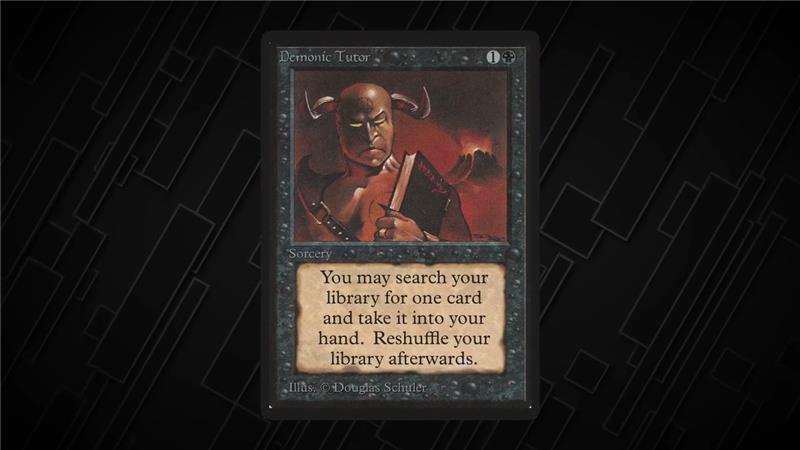
Value
Value refers to the ability to get more resources from a card than normal. If you kill a creature in response to an Aura being cast on it, you get a two-for-one, so your removal spell is getting additional value beyond what it normally does.
Wrath
A synonym for board wipe.
Now You Know Magic Slang!
This is just a brief list of some of the slang you’ll hear in Magic, but it should help you get a grasp of what people are talking about. Thanks for reading, and we look forward to helping you learn more in our other How to Play Magic: The Gathering series of articles from Star City Games.
Next Article
Previous Article

